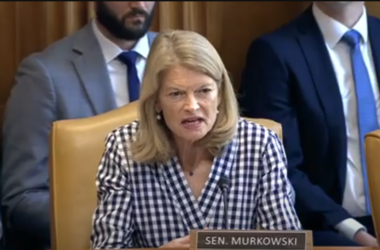The American Lung Association has released its State of Tobacco Control report, which shows the overall grades for tobacco control policies, and outlines steps to reduce the burden of tobacco.
According to the 2024 “State of Tobacco Control” report, the highest grade that the state received was a B, which was for funding the state’s tobacco prevention programs and the strength of smoke-free workplace laws.
Regarding coverage and access to tobacco-quitting services, the state got a C.
For the level of tobacco taxes, Alaska was given a D.
An F, which was the lowest categorized area, was for failure to end sales of flavored tobacco products.
In total, Alaska received two B grades, one C, one D, and one F grade for policies to improve statewide efforts to prevent and reduce tobacco use.
“Tobacco use is the leading cause of death in Alaska and across the country and takes the lives of over 600 state residents each year. The tobacco industry will do anything to protect their profits at the expense of Alaska lives, so we must push forward in our efforts to prevent and reduce tobacco use,” said Carrie Nyssen, Senior Director of Advocacy, at the American Lung Association in Alaska. “This year, we are working with state policymakers to focus on taxing electronic cigarettes and other devices to reduce youth use of these products. One of the most effective ways to reduce tobacco use, not only among low-income individuals but also for youth, is to significantly increase the tax on all tobacco products, including e-cigarettes. Multiple studies have shown that every 10% increase in the price of cigarettes reduces consumption by about 4% among adults and about 7% among youth.”
To reduce the usage of tobacco-related products, the American Lung Association sent in a bill last year to legislation to be considered for the protection of Alaskans, as well as the youth.
Senate Bill 89, which according to Alaska statute, relates to tobacco, tobacco products, electronic smoking products, nicotine, and products containing nicotine. The hope of this bill would either raise taxation for smoking and vapor products or raise the minimum age to purchase these products.
“Currently in Alaska E-cigarettes aren’t being taxed at all. So, they’re exempt from the tax that every other tobacco product is being taxed in Alaska,” said Nyssen.
The American Lung Association says that the bill was originally passed last May, and as of January 16th, 2024, it has been sent to be considered by the House Labor and Commerce Committee during this legislative session.
Some of the other issue that have made it difficult to finalize rules to end the sale of menthol cigarettes and flavored cigars is the FDA’s overdue review of all applications for e-cigarette products, including flavors that are popular among youth. Because of the delay in the federal rules to end the sale of menthol cigarettes and flavored cigars, it is even more important for states to enact laws to end the sale of all flavored tobacco products.
The 2024 “State of Tobacco Control” report grades the federal government in five areas:
• Federal Government Regulation of Tobacco Products – Grade C
• Federal Coverage of Quit Smoking Treatments – Grade D
• Level of Federal Tobacco Taxes – Grade F
• Federal Mass Media Campaigns to Prevent and Reduce Tobacco Use – Grade: A
• Federal Minimum Age of Sale for Tobacco Products to 21 – Incomplete*
*The FDA remains grossly overdue in publishing the final Tobacco 21 regulations as required by statute, which is why it earns an “incomplete.”






